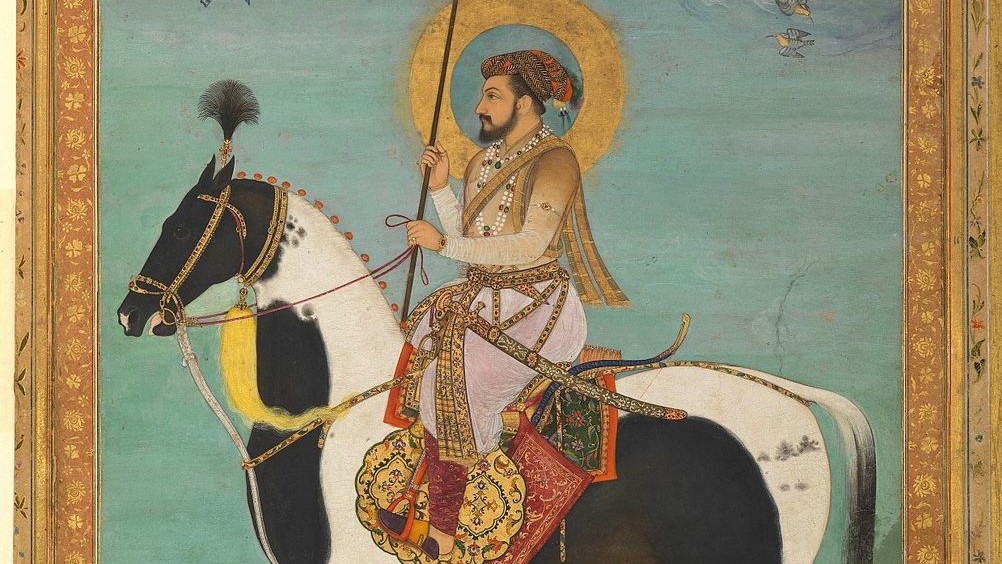With the Megarian Decree of 432 BC, imperial Athens embargoed Megara’s trade lest it accept the Athenian empire’s demands. In doing, the Athenians provide us with the first recorded example of economic sanctions as a measure of war. Since the humanitarian catastrophes of the wars of the twentieth century, economic sanctions have become an increasingly popular policy alternative to military interventions. Economic History Department master’s graduate John Andrews investigates the sanctions placed on Saddam Hussein by the West in the First Gulf War (1990-1991) to better understand when sanctions do and do not achieve their goals.

How well, and under which conditions, do sanctions work? Analyses of sanctions too often take for granted that the political economy of the sanctioned state will eventually delegitimize and bring down the sanctioned government. How the receiving leadership’s psyche and their definition of rationality, in conjunction with the political economy over which they rule, can render sanctions ineffective.
My work investigates why economic sanctions failed to coerce Saddam Hussein to withdraw from Kuwait in 1990. The failure to predict that sanctions would not compel Hussein to withdraw can be attributed to what I term ‘wrongful mirror-imaging’. The West and UN Security Council designed the policy in terms of their own rationality – specific to their own political economies – rather than taking the perspective of the sanctioned dictator. Now, as the West continues to impose sanctions on Putin’s Russia, lessons from the West’s attempts to sanction Hussein may remain relevant today.
Economic sanctions are primarily employed to hinder access to international trade. When international trade suffers, so does the economy. Financial disruptions and widespread hardship amongst the population then follow. Implementing sanctions, in theory, will impose challenges disastrous enough for the sanctioned to comply with the sanctioners’ demands.
The West attempted such a strategy against Saddam Hussein in the First Gulf War. On 2 August 1990 Iraq invaded Kuwait. In response the United Nations Security Council (UNSC) passed Resolution 660, condemning the invasion and demanding Iraq withdraw from Kuwait.
Hussein did not withdraw. In response, on 6 August 1990 the UNSC passed Resolution 661, which imposed comprehensive sanctions on Iraq. Resolution 661 sequestered Iraq from the global economy. International trade and financial transactions with Iraq were banned, oil and arms embargoes were imposed, Iraqi government financial assets abroad were frozen, and international flights were suspended. Naval and air blockades from UNSC member states ensued, introduced formally by UNSC Resolution 670 in September 1990.
Yet by the end of November 1990, despite comprehensive sanctions and economic disruptions, Hussein’s army remained in Kuwait, prompting the UNSC to pass Resolution 678, reaffirming Resolutions 660 and 661 and authorizing member states ‘to use all necessary means…to restore international peace and security in the area’ if Iraq did not withdraw by 15 January 1991. Iraq remained in Kuwait, and, acting with UNSC approval, the United States and allies launched a military campaign on 16 January, 1991 to remove Hussein’s army.
The effects the sanctions had were detrimental to Iraq by virtually all measures of public welfare. A brief review of them gives lie to the idea that sanctions necessarily are a more humane alternative for ‘politics, by other means’.
Data from the World Bank show Iraq’s GDP annual growth plummeted from 57.8% in 1990 to -64% in 1991. Per data from the International Monetary Fund (IMF), Iraqi imports and exports dropped dramatically from 1990 to 1991. Iraqi oil output dropped below 14% of the 3.3 million barrels per day it had recorded in July 1990, causing an estimated $8.5 billion revenue loss alone to Baghdad in 1990.
Iraqi living standards deteriorated. Between August 1990 and the summer of 1992 price levels soared as wages stagnated; real wages fell off a cliff.
The consequences were severe. Roughly 70-80% of caloric intake in Iraq came from food imports. Food calorie availability per capita per day dropped from under 3,500 in 1990 to under 2,500 by 1991’s end. The food price index rose by 1,500-2,000% from August 1990 to August 1991, contributing to malnourishment and real earnings crashes, and spurring an outbreak of profiteering and black marketing. An estimated 120,000 Iraqi children were facing malnourishment by September 1991. Although compounded by the Gulf War and domestic inefficiencies, sanctions partially led to a nationwide shortage of agricultural supplies, which catalyzed a 70-75% drop in agricultural output, compounding food supply and price issues.
Partially from sanctions and partially from the war, water purification/distribution challenges and shortages in medicines and medical supplies contributed to increasing mortality rates. Gastroenteritis became widespread while a typhoid fever epidemic emerged across cities. Fuel shortages inhibited garbage collection, fostering the spread of diseases. Compared to the summer of 1990, child mortality increased by 300 to 400% between January and August of 1991.
And yet, Hussein remained in Kuwait.
Why did these sanctions fail?
What I term ‘wrongful mirror-imaging’ led the West to assume these sanctions-induced crises would force Hussein to withdraw from Kuwait given their immense economic and humanitarian costs. The mirror-imaging problem stems from the word ‘rational’. Uses of the word within the complex domain of international affairs illustrate the mirror-imaging problem. What is rational to a democratic government may be irrational to an authoritarian government, and vice versa. In my opinion, that is precisely what we saw in Hussein’s case.
For Hussein remaining in Kuwait was a more rational decision than withdrawing. Similar to common perceptions as to why Putin invaded Ukraine, Saddam saw Kuwait as a valuable, and perhaps vital territory for Iraq’s growth and/or survival, both geographically and economically. Had Iraq been successful, its border on the Persian Gulf would have grown tremendously, providing a significant upgrade in trade and military capabilities. Kuwait itself was wealthy; data from the Organization of the Petroleum Exporting Countries (OPEC) shows that, had Hussein successfully taken over Kuwait, Iraq’s proven oil reserves would have doubled, oil production would have risen almost 50%, and Iraq would have controlled roughly 20%of world oil reserves.
Economics aside, Hussein also saw the invasion, in the words of historian F. Gregory Gause, as a chance to ‘break up what he saw as…[an] international effort to weaken and destabilize him.’ This is eerily similar to Russia’s attempts to destabilize the North Atlantic Treaty Organization. Both Hussein’s and Putin’s unwavering resistance to Western pressure suggests that a keystone of their foreign policy is ‘standing up to the West,’ rendering any behavior which ran counter to this objective as irrational.
Furthermore, Hussein genuinely believed he could win the War, or at least fend off the West until his enemies fragmented. Given that there was softening sentiment towards Iraq from the Soviet Union and France coupled with Arab states increasingly disfavoring UNSC members meddling in their affairs, Hussein’s defeat was, although likely, not necessarily inevitable. Additionally, Hussein firmly believed that the American public would sour on the War once the American military began taking casualties, which, coupled with softening sentiment from other UNSC members and Arab states, gave him hope.
Adding to Hussein’s rationale was support from non-Western and non-Western-aligned actors. Safar Al-Hawali famously stated that the Gulf War was ‘…not the world against Iraq’ but ‘…the West against Islam.’ Hussein had external support from those who resented the West for its long held military presence and dominance in the Middle East, which may have influenced his decision, inflated his ego, and molded his psyche. Islamic fundamentalist movements and select elites and government officials in the region revered Hussein for standing up to the West, especially since Kuwait was widely perceived as a Western “backed” nation.
But we might say Hussein was not entirely rational. He overestimated his military and underestimated his flagrant violation of western principles. Hussein’s regime had an extensive human rights abuse and military aggression record, indicating that diplomacy, international cooperation, and human rights concerns were not pertinent to him. As put by Adeed Dawisha, his regime enforced an ‘institution of a reign of terror that would hold an entire population hostage to the will and whim of the president’, to the extent that kidnapping, imprisonment, and torture were three possible punishments for anti-Hussein rhetoric.
Instead of succumbing to sanctions, Hussein weaponized them in primarily two ways. First, he fed and supplied his allies well, and deliberately neglected the opposition Shi’a population, to reduce their numbers through starvation. Second, he used the humanitarian crises as opportunities to manipulate food and supply distribution to increase international support to lift the sanctions by enhancing suffering. This weaponization case alone speaks volumes to how the West fell into the mirror-image trap and miscalculated Hussein’s psyche. Power in Iraq’s political economy was concentrated such that widespread suffering did not threaten the legitimacy of the regime.
My study suggests how analyses of the mirror-imaging trap and the receiver’s psyche can explain why economic sanctions have failed as a coercive tactic in the past, despite their immense costs. More research needs to be conducted on how certain factors have influenced the effectiveness of economic sanctions in the past and how sanctions shaped historical growth, especially given sanctions’ rise as a commonly used modern method of warfare. Doing so would help provide a window into policymakers’ best potential course of action, and hopefully minimize the inevitable economic and humanitarian costs that sanctions induce.




